Life Sciences News
See our Latest Journal Publications
Videos from First Labcut Workshop
 Funded by the Wellcome Trust and Warwick Quantitative Biomedicine Programme (WQBP), LabCut is a science film workshop run by SynBio CDT PhD students Cansu Kuey, Charlotte Gruender and Patrick Capel. The five films created during the inaugural workshop are now available to be viewed and will be screened during the British Science Festival in September. Find out more
Funded by the Wellcome Trust and Warwick Quantitative Biomedicine Programme (WQBP), LabCut is a science film workshop run by SynBio CDT PhD students Cansu Kuey, Charlotte Gruender and Patrick Capel. The five films created during the inaugural workshop are now available to be viewed and will be screened during the British Science Festival in September. Find out more
National livestock movement bans may prove economically damaging
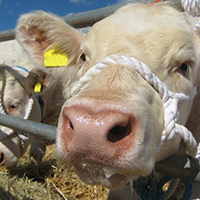 New research led by Dr Mike Tildesley has pioneered an economic perspective on controlling livestock diseases. Focusing on Foot and Mouth Disease (FMD), bovine TB (bTB) and bluetongue virus (BTV), the researchers draw striking conclusions about the role of movement bans in controlling an outbreak.
New research led by Dr Mike Tildesley has pioneered an economic perspective on controlling livestock diseases. Focusing on Foot and Mouth Disease (FMD), bovine TB (bTB) and bluetongue virus (BTV), the researchers draw striking conclusions about the role of movement bans in controlling an outbreak.
Phenom UK 2019
On Monday 22 July, researchers from the University of Sheffield, Rothamsted Research and the University of Nottingham attended a networking event at the University of Warwick Wellesbourne campus. The event was organised by Dr Beatriz Lagunas and sponsored by Phenom UK (‘Technology Touching Life programme funded jointly by BBSRC/EPSRC/MRC). In the morning, visitors enjoyed a guided tour around the field research facility including the pathogen quarantine fields, insect pest trial area, the low nutrient field, and the main rotation fields for irrigated trials. In the afternoon, a round table discussion focused on the challenges of field-based phenotyping.
The breadth of expertise amongst participants allowed discussion of ideas for relating aerial spectral imaging of the crop canopy with below-ground differences in soil nutrient/root/microbe interactions. The consensus was that pilot data is needed in a specific crop from small-scale controlled experiments to identify disease signature wavelengths and then move to field phenotyping based, for example using drone-based imaging in collaboration with both the University of Sheffield and Rothamsted Research. The PhenomUK website will provide a useful forum for further discussions. All Warwick people interested in following up the discussions are encouraged to do it through the Plant & Crop Science Theme and to register at the Phenom UK websiteLink opens in a new window.
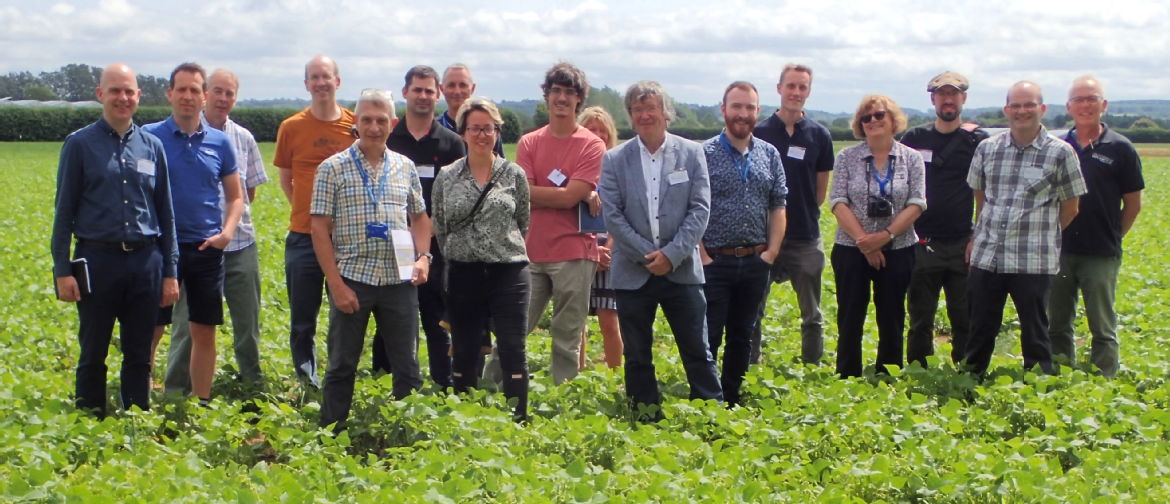
Phenom UK networking visit attendants standing in a field of haricot beans (from left to right):
Craig Sturrock (U. of Nottingham), Patrick Schäfer (U. of Warwick), Rob Lillywhite (U. of Warwick), Stephen A. Rolfe (U. of Sheffield), Graham Teakle (U. of Warwick), Gabriel Castrillo (U. of Nottingham), John Clarkson (U. of Warwick), Beatriz Lagunas (U. of Warwick), Guilhem Reyt (U. of Nottingham), Sally Mann (U. of Warwick), Malcolm Hawkesford (Rothamsted Research), Alexander McCormack (U. of Warwick), Tim Mauchline (Rothamsted Research), Rosemary Collier (U. of Warwick), Joost H.M. Stassen (U. of Sheffield), Rory Hayden (U. of Nottingham) and Eric Holub (U. of Warwick).
A cure for the common cold?
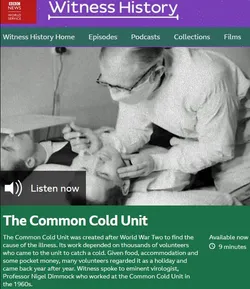 Did you know that SLS researchers have been leading work to find cures for the common cold and influenza?
Did you know that SLS researchers have been leading work to find cures for the common cold and influenza?
Listen as Professor Nigel Dimmock discusses his career and his new antiviral research on the BBC.
Download or listen online bbc.in/2GA7W74Link opens in a new window
When and how did we first start to domesticate wild plants?
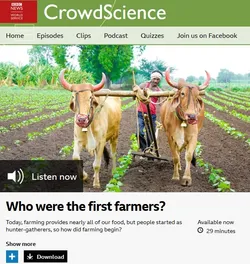 Professor Robin Allaby talks to CrowdScience on the BBC World Service and explains all.
Professor Robin Allaby talks to CrowdScience on the BBC World Service and explains all.
Listen to bbc.in/2JV7jpVLink opens in a new window (Interview starts at approx 5:28).
Bacteria such as E. coli detected in minutes by new technology
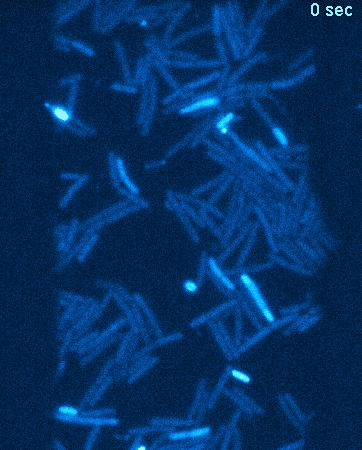 Dr Munehiro Asally, Dr James Stratford and colleagues, showed that bioelectrical signals from bacteria can be used to rapidly determine if they are alive or dead.
Dr Munehiro Asally, Dr James Stratford and colleagues, showed that bioelectrical signals from bacteria can be used to rapidly determine if they are alive or dead.
The findings offer a new technology which detects live bacteria in minutes instead of waiting for lab-test results which can take days.
When 'zapped' with an electrical field, live bacteria absorb dye molecules, causing the cells to light up and allowing them to be counted easily.
This rapid technique can detect antibiotic-resistant bacteria.
Beer and fodder crop has been deteriorating for 6000 years
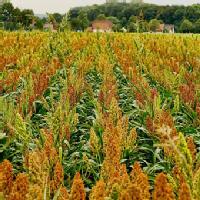 The diversity of the crop Sorghum, a cereal used to make alcoholic drinks, has been decreasing over time due to agricultural practice. To maintain the diversity of the crop and keep it growing farmers will need to revise how they manage it. According to Professor Allaby and colleagues, different groups of sorghums have ‘rescued’ each other from damage, giving insight into how such crops could be rescued in the future.
The diversity of the crop Sorghum, a cereal used to make alcoholic drinks, has been decreasing over time due to agricultural practice. To maintain the diversity of the crop and keep it growing farmers will need to revise how they manage it. According to Professor Allaby and colleagues, different groups of sorghums have ‘rescued’ each other from damage, giving insight into how such crops could be rescued in the future.
The milkweed bug’s orange wings and DNA: how insects’ diets are revealed by the genome
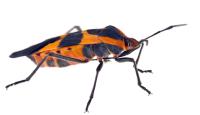 An international collaboration of researchers, including Dr Kristen Panfilio from the School of Life Sciences, have sequenced the genome of the milkweed bug, enabling scientists to understand at the molecular level what makes the bug, from its colourful development to its toxic diet.
An international collaboration of researchers, including Dr Kristen Panfilio from the School of Life Sciences, have sequenced the genome of the milkweed bug, enabling scientists to understand at the molecular level what makes the bug, from its colourful development to its toxic diet.
Man’s impact on flax evolution more limited than thought
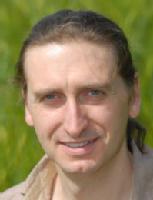 Flax naturally adapted to new environments rather than by human influence due to a set of genes that enable it to change its architecture according to research led by Professor Robin Allaby.
Flax naturally adapted to new environments rather than by human influence due to a set of genes that enable it to change its architecture according to research led by Professor Robin Allaby.
The evolution of Maize is more complex than thought
 New evidence reveals that the evolution of Maize in South America is more complex than initially thought, and there was a further geographical area in which partial domestication occurred in the Southwest Amazon - according to an international collaboration of researchers including the University of Warwick, and published in the journal Science.
New evidence reveals that the evolution of Maize in South America is more complex than initially thought, and there was a further geographical area in which partial domestication occurred in the Southwest Amazon - according to an international collaboration of researchers including the University of Warwick, and published in the journal Science.
Crops can be grown in Arsenic contaminated soil without being poisonous
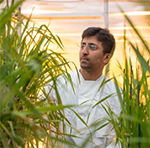 Researchers in Life Sciences are working on ways to contribute to developing safe crops which can be grown in As contaminated soil but reduce the amount of As going to the edible part.
Researchers in Life Sciences are working on ways to contribute to developing safe crops which can be grown in As contaminated soil but reduce the amount of As going to the edible part.
Who wants to live for ever?
 Research into the process of ageing hasn’t quite found the key to immortality, but it is revealing the way our bodies change over time and what factors contribute to longer and healthier lives. Evolutionary biologist Dr Andre Pires da Silva is looking at the genetics of a species of roundworm and the length of their lives, with a view to gaining insight into human aging. He has found some astonishing results.
Research into the process of ageing hasn’t quite found the key to immortality, but it is revealing the way our bodies change over time and what factors contribute to longer and healthier lives. Evolutionary biologist Dr Andre Pires da Silva is looking at the genetics of a species of roundworm and the length of their lives, with a view to gaining insight into human aging. He has found some astonishing results.
£100 million pledge to Postgraduate training by NERC
Over the next 5 years NERC (The Natural Environment Research Council) will invest £100m to support PHD students, including those at the University of Warwick, meaning the next generation of world-class scientists trained and engaged in both industrial and academic environmental solutions will be produced by the University.
Enzyme discovery could help in fight against TB
An enzyme structure discovery made by scientists at the University of Warwick could help to eradicate tuberculosis (TB).
Research by a team led by Dr Elizabeth Fullam, has revealed new findings about an enzyme found in Mycobacterium tuberculosis (Mtb) the bacterium that causes TB. TB causes more deaths than any other infectious disease, including from HIV and malaria.
Two million pounds awarded to fight disease in East Africa
The University of Warwick has been awarded £2 million to tackle the spread of viruses in East Africa.
The award has been made to the NIHR Global Health Research Group on the Application of Genomics and Modelling to the Control of Virus Pathogens (GeMVi) in East Africa at the University of Warwick. GeMVi brings together expertise in pathogen sequencing and predicative modelling. Life Sciences academics Professor James Nokes and Professor Matt Keeling are co-investigators.
Memory processes depend on protein ‘off-switch’ – could lead to new Alzheimer’s treatments
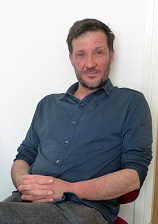 Memory, learning and cognitive flexibility depend on a protein ‘off-switch’ in the brain, according to a breakthrough discovery made by an international research collaboration co-led by Dr Mark Wall at the University of Warwick.
Memory, learning and cognitive flexibility depend on a protein ‘off-switch’ in the brain, according to a breakthrough discovery made by an international research collaboration co-led by Dr Mark Wall at the University of Warwick.
This new knowledge could enable us to better understand and combat neurological diseases which inhibit memory, such as Alzheimer’s.
New academic appointments in the School of Life Sciences
The School of Life Sciences invites applications for four new academic positions to strengthen key research areas in the School. This is part of our strategic growth on the Gibbet Hill Biology campus, supported by investment in a new Interdisciplinary Biomedical Research Building that will bring together researchers from Life Sciences and Warwick Medical School to understand the origins and mechanistic basis of diseases.
Life Sciences gets share of £2.6 million research funding from Diabetes UK
 Diabetes UK has committed to invest £2.6 million in 19 brand new projects which aim to make life-changing improvements in diabetes care, and reduce people’s risk of Type 2 diabetes.
Diabetes UK has committed to invest £2.6 million in 19 brand new projects which aim to make life-changing improvements in diabetes care, and reduce people’s risk of Type 2 diabetes.
The funding will be given to projects looking into Type 1, Type 2 and gestational diabetes.
In one of these projects, Dr Freya Harrison, from the School of Life Sciences, will be using medieval remedies to find new sources of antibiotics. She has already discovered a combination that can kill antibiotic-resistant bacteria in the lab.
Professor R.John Ellis to be presented with 2019 Centenary Award
 Professor R.John Ellis, an Emeritus in the School of Life Sciences, has been honoured in the Biochemical Society's annual Awards. The awards recognise scientists for the excellence of their work and the impact it has had within the bioscience community and wider society.
Professor R.John Ellis, an Emeritus in the School of Life Sciences, has been honoured in the Biochemical Society's annual Awards. The awards recognise scientists for the excellence of their work and the impact it has had within the bioscience community and wider society.
Professor Ellis will be presented with the 2019 Centenary Award for his pioneering research on molecular chaperones and their role in protein folding.
Odd genetics of a tri-sexual worm
In a recent paper published in Current Biology, Dr Andre Pires da Silva and colleagues describe a species of nematode that has three sexes - male, female and hermaphrodite. Auanema rhodensis, the worm featured in the study, uses an unusual reproductive strategy with only one sex chromosome (X). Hermaphrodites and female worms have two X chromosomes; males have just one X chromosome. Researchers found that some hermaphroditic worms will produce sperm with two X chromosomes and eggs with no chromosomes. When the hermaphroditic worms and male worms mate, only more male worms are produced. One possible explanation is that male worms may be important for the species' genetic diversity, providing A. rhodensis with the ability to adapt to changing conditions more efficiently than other species.
- Read paper: Sex- and Gamete-Specific Patterns of X Chromosome Segregation in a Trioecious Nematode Current Biology, Vol 28, Issue 1 p93-99e
- Interview in Newsweek
